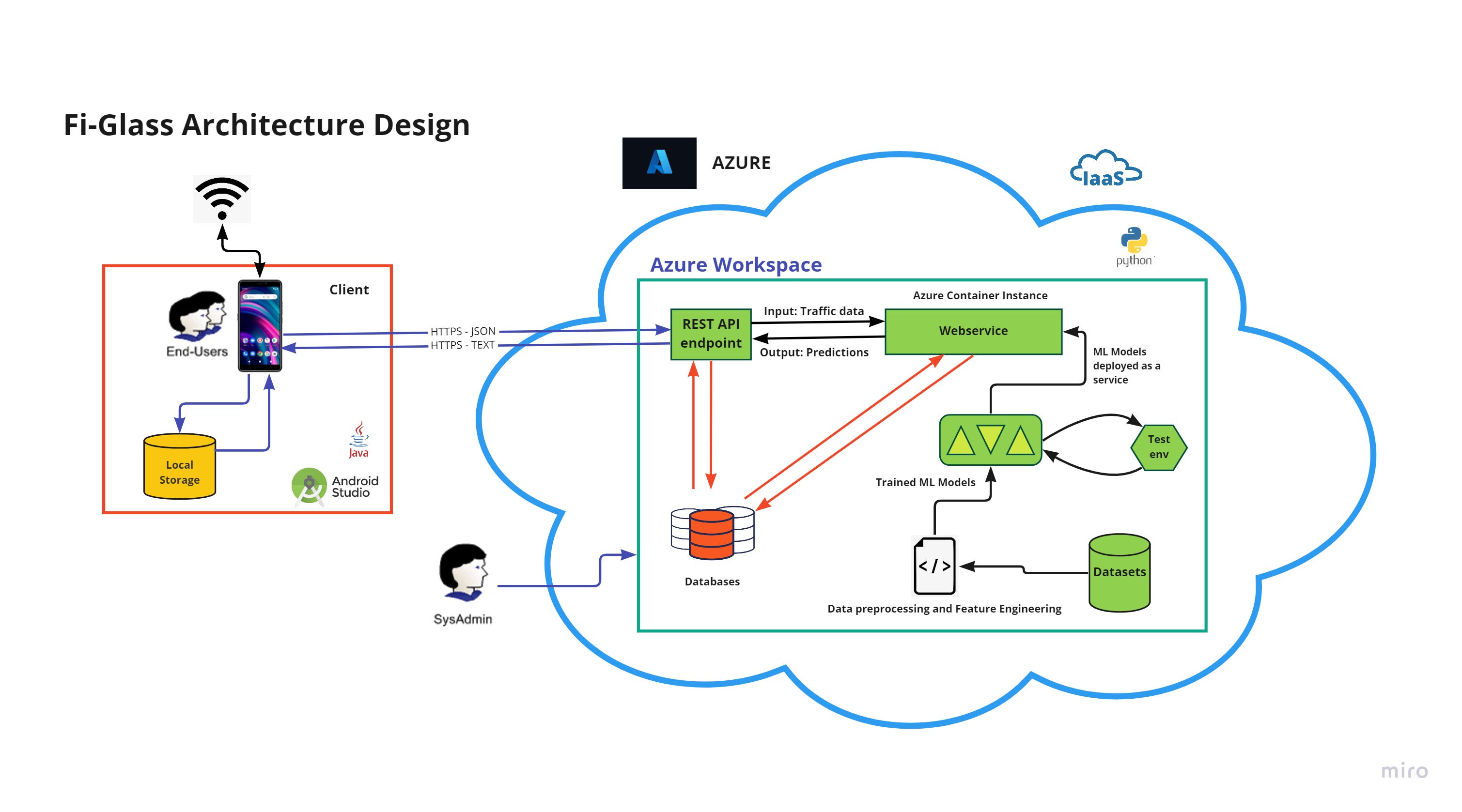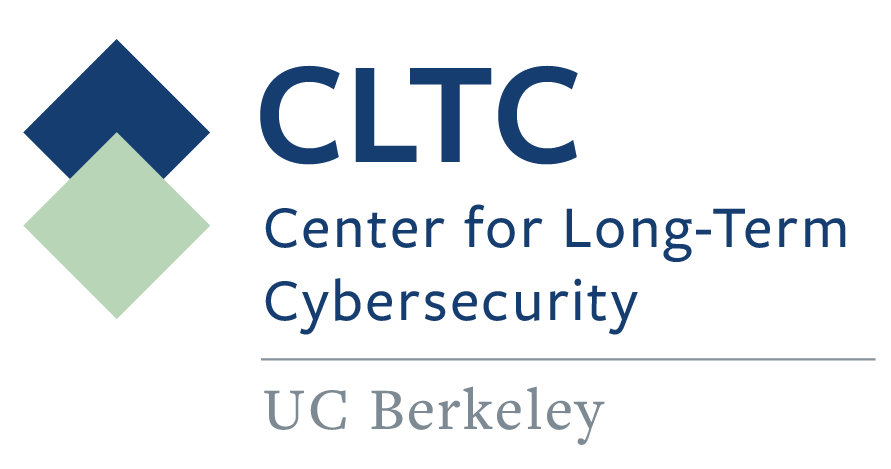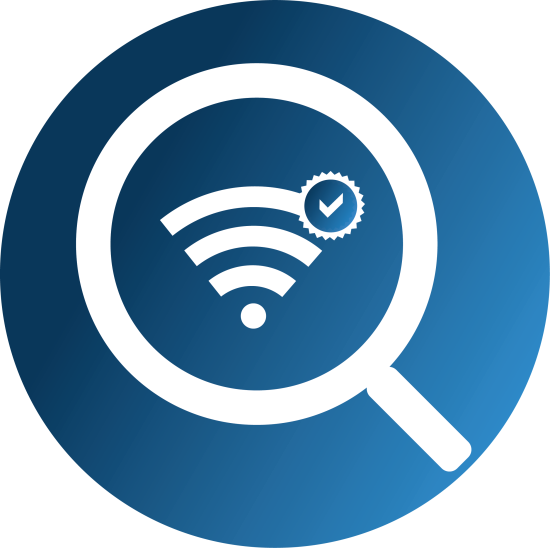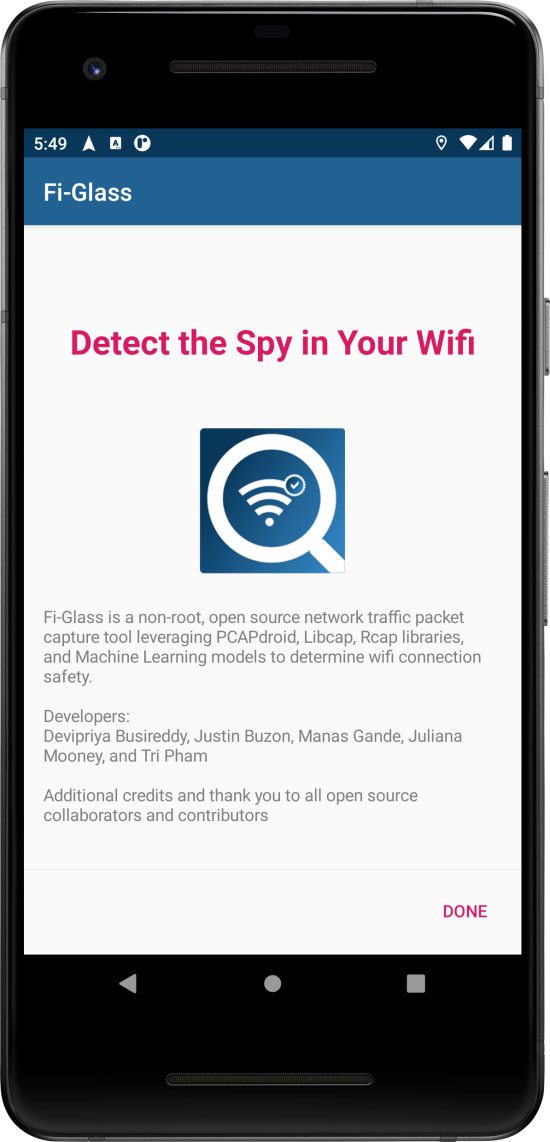Fi-Glass
Fi-Glass, Detect the Spy in Your Wi-Fi.
Problem
There is an issue where most open wifi networks or hotspots do not require encryption of data traveling wirelessly which make it very easy for cyberattackers to target individuals on these networks. In 2022, there will be an estimated 549 million wifi hotspots worldwide (Cisco Visual Network Index). Although these open networks are convenient, there are major risks associated with joining open wifi networks. The biggest risk of joining unsecured or public wifi networks or even malicious wifi hotspots is a man-in-the-middle attack: where an attacker can capture traffic, steal personal information, payment details, and even manipulate data packages to install malware or spyware on the device. This is done through packing sniffing, packet injection, session hijacking, SSL striping, and more while on an unsecured or unencrypted network. To amplify how common it is to connect to an open wifi network, consider how most public places offer free wifi. Examples include hotels, cafes, restaurants, universities, colleges, libraries, museums, gyms, shopping centers, public transportation, and more. In addition, acknowledge who these users are: travelers, freelancers, journalists, or even people who want to avoid using their data packages or need to connect a personal computer which can be categorized as vulnerable individuals.
Capstone Vision and Opportunity
Fi-Glass’s goal is to solve the biggest risk of joining unsecured or public wifi networks by alerting on malicious network activity. The product is engineered with usability at the core to enable everyday users to make better cybersecurity decisions without the need to understand the technicalities.
Fi-Glass is an Android application that can scan public wifi networks when joining the network to determine if there is malicious activity on the network. A combination of a simplistic front end that can alert the user if the network results are safe or malicious paired with the backend which uses cutting-edge machine learning to identify and classify attacks. The client will be a light-weight android application that gathers packet capture (PCAP) files and sends network information as packaged JSON to the server. Machine Learning (ML) model training, testing, and data analysis will happen in the cloud in an Azure Workspace. ML algorithms and other necessary checks on the parsed JSON will determine if network traffic gathered by the client contains any malicious activity. The server will then pass the determined results to the client to be displayed as either a stamp of approval on a secure connection or a warning to prompt users of its unsafeness. The display of the resulting information depends on how much information would be considered useful to the user. Ultimately, users still hold the final decision whether to stay connected to a network.
Future Feature Enhancements
- Database Intelligence: Database to store hashed unique wifi identifiers and their past predictions.
- Larger Product Offering: Application capability for iOS and desktops.
- Continuous Improvements: Enhanced Machine Learning.
- Increased Protection: Continuous Monitoring.
Fi-Glass Architecture
Research Fellowship
- Cal Cybersecurity Research Fellowship from UC Berkeley's Center for Long Term Cybesecurity (CLTC)
Acknowledgements
- Ryan Liu and Dr. Sekhar Sarukkai (UC Berkeley Capstone Instructors)
- Pascal Issa (MICS Alumni and UC Berkeley Lecturer)
- Clarence Chio (UC Berkeley Lecturer)














